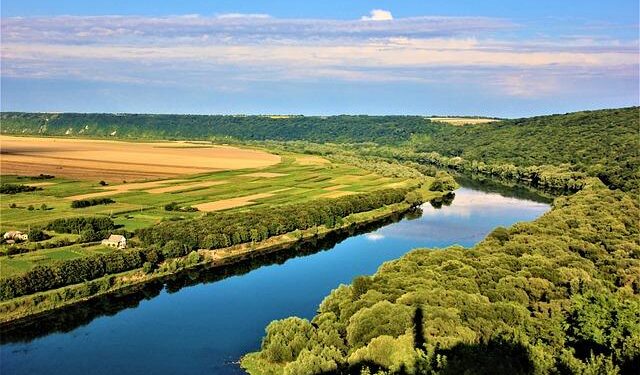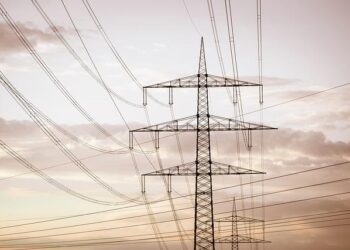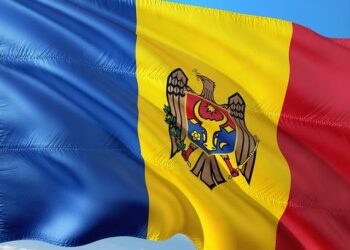In the wake of escalating energy shortages exacerbated by geopolitical tensions and regional instability, Moldova finds itself at a critical crossroads. As the country grapples wiht an energy crisis fueled by the fallout from the Russia-Ukraine conflict and the ongoing dependence on external suppliers, the ramifications extend far beyond the immediate need for fuel and electricity. Analysts suggest that this crisis may inadvertently serve as a catalyst for reunification discussions with Romania, a possibility that carries profound implications for MoldovaŌĆÖs political landscape and national identity. This article, drawing insights from the Carnegie Endowment for International Peace, explores how Moldova’s current energy challenges could reshape its relationship with Romania and potentially pave the way for a significant geopolitical shift in Eastern Europe. Through an examination of historical ties, economic factors, and public sentiment, we uncover the potential for a renewed partnership that could redefine MoldovaŌĆÖs future amidst energy uncertainty.
Moldovas Energy Landscape: Understanding the Current Crisis
Moldova’s current energy crisis stems from a complex interplay of geopolitical tensions and reliance on external energy sources. The country has historically depended on gas and electricity imports from Russia, a vulnerability that has been magnified by the ongoing conflict in Ukraine. As a result, rising energy prices and supply uncertainties have led to economic strain, making it challenging for both households and businesses to function effectively. This precarious situation has heightened public awareness around energy independence, prompting discussions about diversifying supply sources and investing in renewable energy alternatives.
In light of these struggles, local sentiment increasingly leans towards the idea of reunification with Romania. Both historical connections and shared cultural values are driving this sentiment, as citizens see potential benefits such as access to energy infrastructure, economic stability, and enhanced security through EU integration. While the prospect of reunification is fraught with political challenges, the energy crisis may serve as a catalyst for broader discussions on national identity and long-term solutions for Moldova’s energy needs, pushing the narrative further into the political arena.
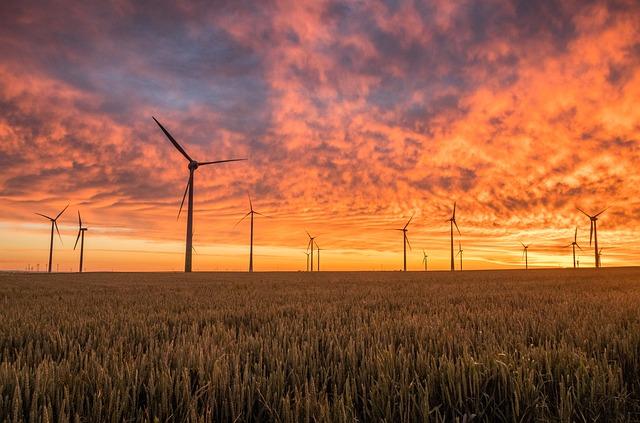
The Role of Energy Security in Moldovas Geopolitical Context
The dynamics of energy security in Moldova are intricately tied to its geopolitical positioning, especially given its reliance on external energy sources. Moldova’s energy landscape is significantly influenced by its dependence on imports, especially from Russia for natural gas and electricity.This vulnerability not only affects the country’s economic stability but also poses challenges to its political sovereignty.As the region faces increasing pressure from geopolitical tensions, the necessity for diversifying energy sources and establishing greater energy autonomy has never been more pressing. Moldova’s energy crisis serves as a stark reminder of the concrete risks associated with over-reliance on a single supplier.
In this context,energy security could catalyze shifts in Moldova’s alignment and aspirations,amplifying discussions around reunification with Romania.A more interconnected energy infrastructure between Moldova and Romania could enhance Moldova’s energy security, providing an alternative to its current dependency.Potential steps to bolster this transition include:
- Investing in renewable energy projects
- Developing interconnections with European energy markets
- Strengthening cooperations for joint energy storage facilities
Exploring these options not only aims to mitigate existing vulnerabilities but could also serve as a strategic move towards greater political alignment with Romania and integration into European structures. The implications of energy security extend beyond mere supply; they touch on issues of national identity, economic resilience, and the very fabric of Moldova’s future in the region.
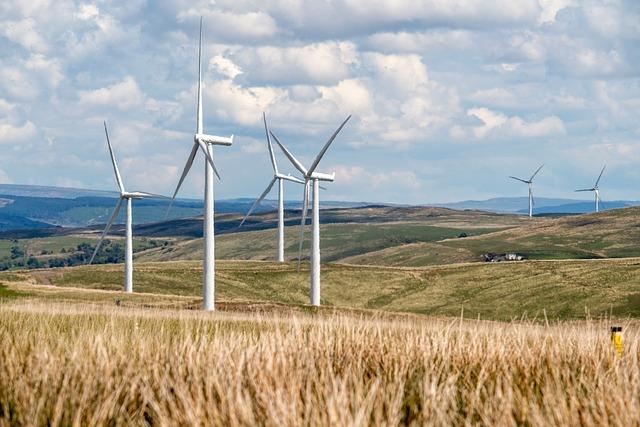
Implications of Energy Dependence for Moldovas National Identity
The ongoing energy crisis in Moldova not only exposes vulnerabilities in energy supply but also serves as a crucible for the nation’s identity. Historically, Moldova has navigated a delicate path between its European aspirations and the influence of larger neighbors, particularly Russia. As energy dependence shifts, so dose the narrative of what it means to be Moldovan. With a significant portion of energy resources imported, many citizens and policymakers are beginning to view energy independence as a linchpin towards a more defined national identity. This drive to establish an autonomous energy landscape could led to a resurgence of national pride, as the populace rallies around the idea of sovereignty that is less tethered to external powers.
Moreover, as Moldova seeks alternatives to its customary energy suppliers, there could be a unifying effect on the population that transcends regional and ethnic divisions. Recognizing the need for collaborative solutions, stakeholders might forge stronger connections within the country, leading to a more cohesive national sentiment. Opportunities for reinvigorating partnerships with European neighbors and institutions might serve as a catalyst for economic and cultural exchange. Facilitated by energy diversification, key implications could include:
- Enhanced National Pride: A move towards energy independence may foster a deeper connection to the Moldovan identity.
- Cohesive Social Fabric: the drive for independence could unite various ethnic and regional groups under a common goal.
- Stronger Economic Ties: Diversifying energy sources may lead to stronger collaborations with European nations.
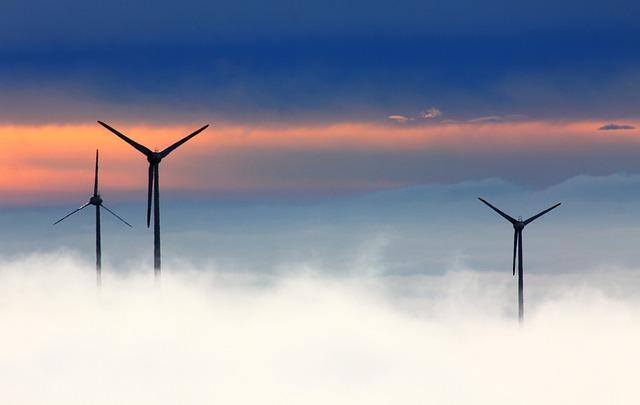
Strategies for Diversifying Energy Sources and Strengthening Resilience
The current energy crisis in Moldova highlights the urgent need for a multifaceted approach to diversify energy sources and enhance national resilience. By leveraging local resources and innovative technologies, Moldova can reduce its dependence on external suppliers. Key strategies include:
- Investment in Renewable Energy: Expanding wind, solar, and hydroelectric power projects can significantly increase the share of clean energy in the national grid.
- Energy Efficiency Programs: Implementing retrofitting initiatives for residential and commercial buildings can reduce overall energy consumption.
- Diverse Supply Contracts: Establishing agreements with a broader range of suppliers can mitigate risks associated with political instability in energy-exporting regions.
- Regional Energy Partnerships: collaborating with neighboring countries to create interconnected energy systems can improve supply stability.
Building a robust energy infrastructure also involves improving the regulatory habitat to support innovation and competition. The government could consider:
- Incentives for Private Investment: Offering tax breaks or subsidies for companies investing in renewable energy sectors can boost local economic growth.
- Public-Private Partnerships: Engaging both sectors in energy projects can foster a proactive approach in managing energy resources.
- Education and Public Awareness Campaigns: Promoting understanding of energy conservation methods and the benefits of renewable sources among citizens can cultivate a culture of sustainability.
| Strategy | Benefits |
|---|---|
| Renewable Energy Investment | reduces dependency on fossil fuels |
| Energy Efficiency Programs | Lowers energy bills for consumers |
| Diverse Supply Contracts | Enhances energy security |
| Regional Energy Partnerships | Improves supply stability |

Reunification Prospects: How Energy cooperation Could Foster Unity
As Moldova grapples with its ongoing energy crisis, the potential for energy cooperation becomes a pivotal factor in reshaping the region’s political landscape. Investing in joint energy projects offers a unique opportunity for both Moldova and its neighboring countries,particularly Romania and Ukraine,to forge stronger ties. This collaboration could result in a more integrated energy market, enhancing security of supply while reducing dependency on any single energy source. Furthermore, the establishment of cross-border energy infrastructure can foster a sense of unity among these nations, working collectively towards a common goal: energy independence and stability.
The path towards reunification could be solidified through a series of strategic initiatives, such as:
- Shared renewable energy projects: Investing in solar and wind farms that benefit all involved nations not only promotes lasting energy but also cultivates interdependence.
- Interconnected energy grids: Enhancing grid connectivity can enable Moldova to achieve more reliable energy flow, while reducing vulnerabilities.
- Policy alignment: Collaborative efforts can harmonize regulations and standards, paving the way for a seamless energy market.
Such synergy not only addresses immediate needs but also lays the groundwork for a more cohesive political relation among these states,ultimately steering Moldova closer to reconsidering its long-term re-integration aspirations.
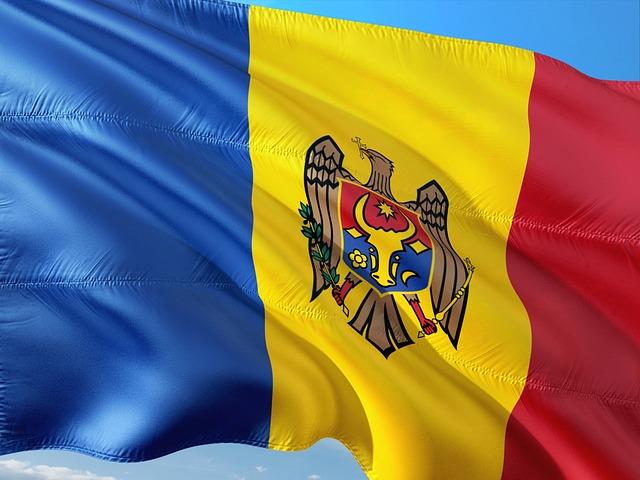
Policy Recommendations for International Support in Moldovas Energy Strategy
As Moldova grapples with an energy crisis exacerbated by external pressures,international support becomes critical in fortifying its energy strategy. Collaborative partnerships with Western nations, the European Union, and international financial institutions are vital for securing investments aimed at diversifying energy sources and enhancing energy security. Key recommendations include:
- Facilitating Technical Assistance: Countries can provide expertise in modernizing energy infrastructure and integrating renewable energy technologies.
- Enhancing Regional Cooperation: Encouraging Moldovan participation in regional energy initiatives can foster shared resources and collective solutions.
- Supporting Policy Development: International actors should assist in crafting transparent and effective regulatory frameworks that promote investment in energy efficiency and sustainability.
Additionally, Moldova must leverage its geopolitical position to underscore its importance in the regional energy landscape. Strategic incentives should be offered to countries willing to invest in Moldova’s energy sector, fostering not just energy independence but also economic growth. A proposed framework for international support might include:
| International Partner | Support Focus Area | potential Impact |
|---|---|---|
| EU | Energy Market Integration | Improved energy supply┬Ādiversification |
| USA | Investment in Renewable Technologies | Enhanced energy security |
| World Bank | Financial Support for Infrastructure | Modernized energy infrastructure |
In Retrospect
Moldova’s ongoing energy crisis serves as both a challenge and an opportunity in the context of its long-standing aspirations for reunification with romania. As the nation grapples with the immediate impacts of energy shortages and dependence on external suppliers, the crisis underscores the urgent need for strategic energy reforms and diversification.Furthermore, the situation could catalyze a renewed dialog about integration, tapping into the historical and cultural ties that bind Moldovan and Romanian societies. The prospects for reunification may hinge not only on energy solutions but on political will and regional stability, necessitating a careful balancing act between national sovereignty and the benefits of closer ties. As Moldova navigates these turbulent waters, its approach to energy resilience could lay the groundwork for a future that reflects both its historical legacy and its aspirations for a sustainable and united path forward.


